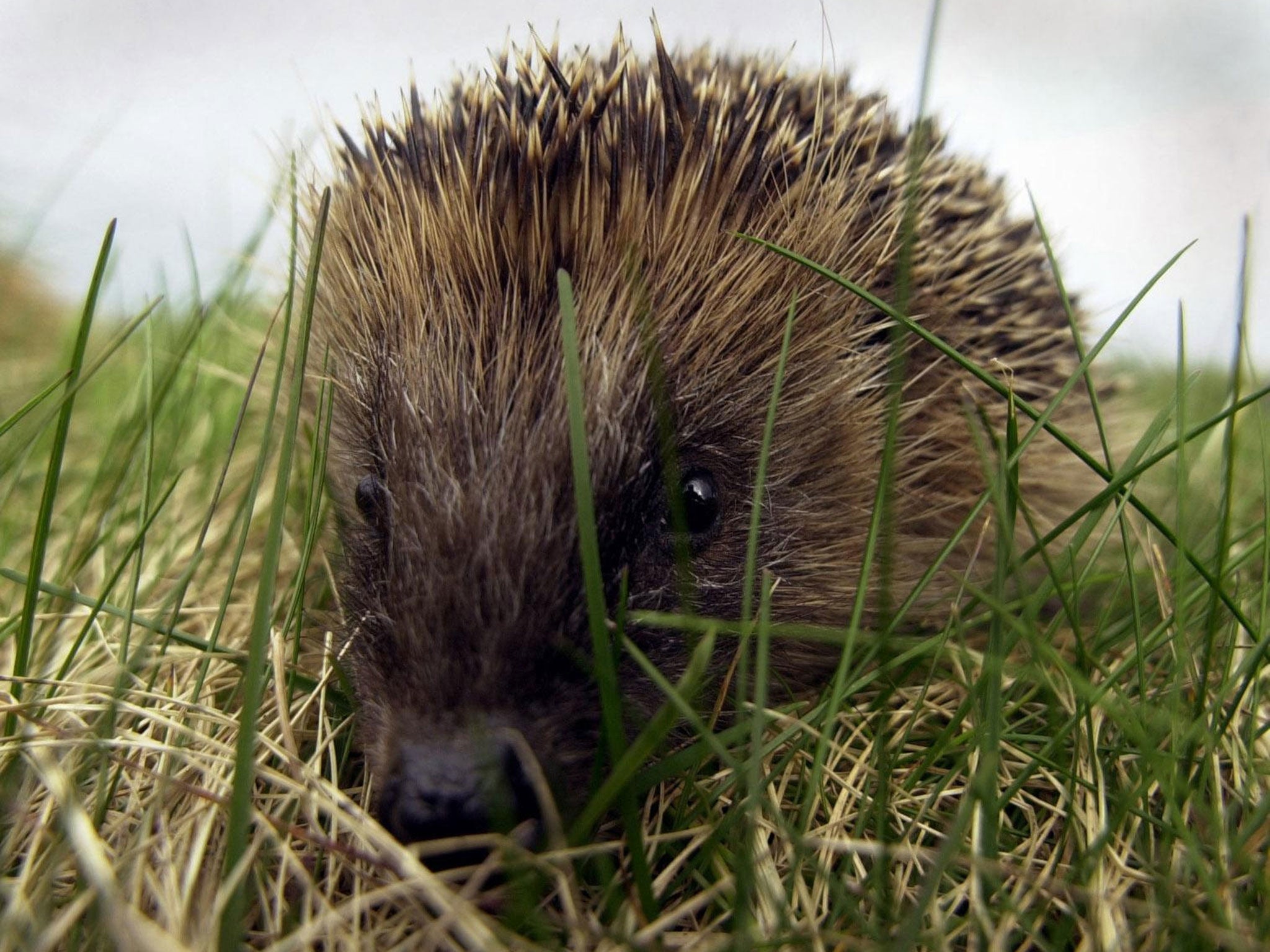Hedgehog sightings in British gardens fall again, survey reveals
The population of hedgehogs in the UK has decreased by a third since 2000

Hedgehog sightings have fallen again as the prickly wild mammal continues to disappear from British gardens.
Fifty-seven per cent of people responding to the annual survey by BBC Gardener's World Magazine said they had not seen any of the creatures during the whole of 2017.
This compares to 51 per cent for 2016 and 48 per cent for 2015.
Only nine per cent of people reported seeing hedgehogs in their gardens regularly, down from 12 per cent in 2016.
Hedgehogs are often regarded as the "gardener's best friend" because they like to eat beetles, earthworms and slugs.
Once widespread, the mammal is under threat because of the reduction of hedgerows and the spread of roads and housing developments.
The UK hedgehog population has fallen by a third since 2000 and it is estimated there are now less than a million compared to 30m in the 1950s.
Gardeners are being encouraged to build hedgehog houses, link gardens using "Hedgehog Highways" in fences, and add log piles and wild areas for insects and other wildlife.
The survey, which has been running since 2008, revealed that thirty-nine per cent of the 1,718 respondents said they had stopped using poisonous slug pellets.
Thirty-six per cent kept leaves and twigs for the mammals to nest in and 17 per cent cut a hole in their garden fences to help hedgehogs roam around.
"It's alarming to see numbers of our cherished hedgehogs continuing to decline, as they're such a vital part of any healthy garden and, more widely, our ecosystem," said Kevin Smith, BBC Gardeners' World Magazine deputy editor.
"On a positive note, British gardeners are doing more than ever to try to save them - with a reduction in slug pellets the biggest single action taken in the last year."
Hedgehogs were made a priority species for conservation in 2007.
Join our commenting forum
Join thought-provoking conversations, follow other Independent readers and see their replies
Comments
Bookmark popover
Removed from bookmarks